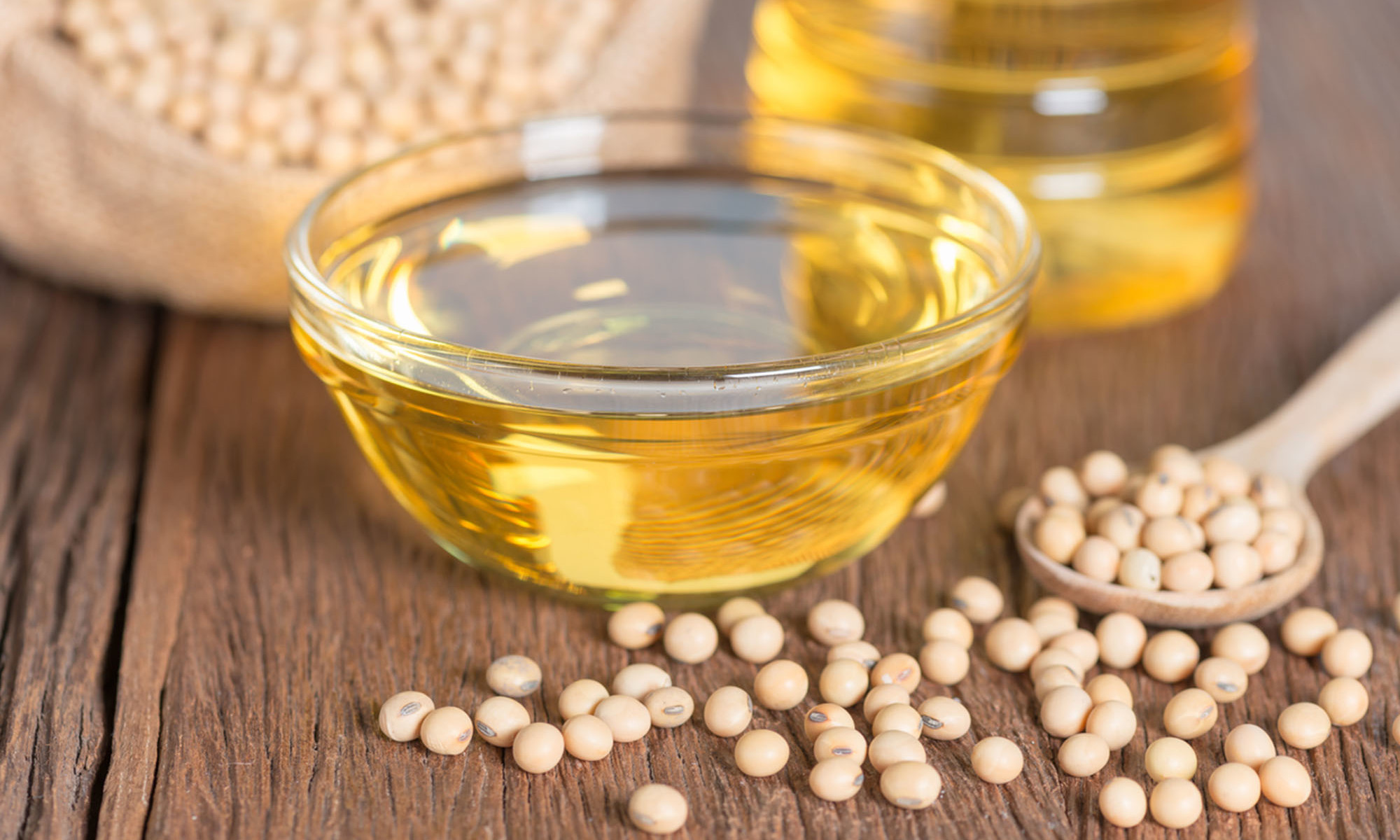Soybean Oil Health Benefits, Uses, And Downsides
Soybean oil Health Benefits, Uses, And Downsides: Soybean oil is an incredibly popular and versatile cooking oil linked to several health benefits. Here are six benefits and uses of soybean oil. Soybean oil is a vegetable oil extract from the soybean plant’s seeds.

Between 2018 and 2019, around 62 million tons (56 million metric tons) of soybean oil were produce around the globe, making it one of the most common cooking oils available.
It’s also incredibly versatile and can be use in a variety of cooking methods, including:
- frying
- baking
- roasting
Plus, it’s been link to several health benefits, especially regarding your heart, skin, and bones. However, soybean oil is a highly refined oil rich in omega-6 fats, and some studies suggest that its consumption may be associate with several negative health effects.
This article covers six potential health benefits of soybean oil, plus possible downsides.
1. Soybean oil has a high smoke point
The temperature at which lipids begin to oxidize and break down is known as an oil’s smoke point. This leads to the production of dangerous, disease-causing substances known as free radicals, which can put the body under oxidative stress. The smoke point of soybean oil is comparatively high, at roughly 450°F (230°C).

Canola oil has a smoke point of 428–450°F (220–230°C), while unprocessed extra-virgin olive oil has a smoke temperature of approximately 375°F (191°C). Because it can tolerate high temperatures without degrading, soybean oil is a superb choice for high-heat cooking techniques like roasting, baking, frying, and sautéing.
Summary: Soybean oil has a relatively high smoke point, which makes it a good option for high-heat cooking.
2. Soybean oil is rich in heart-healthy fats
Polyunsaturated fatty acids, which are heart-healthy fat types link to various advantages, make up the majority of the fat content in soybean oil. According to studies, replacing saturated fats with polyunsaturated fats may reduce the risk of heart disease.
A comprehensive analysis encompassing eight trials revealed that individuals with a 10% decreased risk of heart disease substituted 5% of their daily energy intake from saturated fat with polyunsaturated fat. Switching from saturated to polyunsaturated fats may also lower levels of low-density lipoprotein (LDL), a significant risk factor for heart disease.
In summary: polyunsaturated fats found in soybean oil are mostly associate with lowered cholesterol and a lower risk of heart disease.
3. Soybean oil may support bone health
Just one tablespoon (15 mL) of soybean oil packs 25 mcg of vitamin K, knocking out around 20% of the recommended daily value in a single serving.
Although its impact on blood clotting is arguably the most well-known, vitamin K is also essential for controlling bone metabolism. Studies reveal that vitamin K is required for the synthesis of certain proteins, such osteocalcin, that are essential for preserving bone mass. Diets high in polyunsaturated fats may help prevent age-related bone loss, according to some study. More research is necessary to validate this possible effect, though, as there has been little of it thus far.
Another 2-year study in 440 women found that taking 5 mg of vitamin K daily was linked to a lower risk of bone fractures. Moreover, one animal study showed that giving soybean oil to rats for two months reduced markers of inflammation and helped balance mineral levels in the blood and bones, suggesting that it may help prevent bone loss. However, additional large, high-quality studies are needed to evaluate the effects of soybean oil on bone health in humans.
Summary: Soybean oil is rich in vitamin K, which may help maintain bone strength and reduce the risk of fractures. One animal study also found that the oil may help prevent bone loss.
4. Soybean oil contains omega-3 fatty acids
Every serving of soybean oil has a substantial amount of omega-3 fatty acids. Omega-3 fatty acids are essential for heart health, prenatal development, brain function, and immunity. They have been related to a number of health advantages. Increasing your consumption of omega-3 fatty acids can also aid in the reduction of inflammation, which is believed to have a role in the emergence of chronic illnesses such as diabetes, cancer, and heart disease.
Alpha-linolenic acid (ALA), an omega-3 fatty acid found in soybean oil, is not very effective in converting to DHA and EPA, two important fatty acids. Only ~0.1–7.9% of ALA is converted to EPA, while <0.1–3.8% of ALA is transforme to DHA, according to research. Because of this, soybean oil is an unreliable supply of DHA and EPA, which are vital lipids require for proper cellular operation.
Furthermore, soybean oil is far richer in omega-6 fatty acids than omega-3 fatty acids, although having some omega-3 fats as well. Although you need both kinds, most people only obtain enough omega-3 fatty acids and too much omega-6 fatty acids. Chronic illness and inflammation may be exacerbated by this. Because of this, it’s recommended to combine soybean oil with a range of other foods that are high in omega-3 fatty acids, like:
- salmon
- flax seeds
- walnuts
Summary: Soybean oil contains omega-3 fatty acids, which are key in promoting health and preventing chronic disease.
5. Soybean oil promotes skin health
For good reason, soybean oil is frequently listed among the ingredients in serums, gels, and lotions intend for skin care. Soybean oil may be good for the skin, according to certain research. In one study, for example, the application of this oil to the skin improved the skin’s natural barrier to help maintain moisture. This study involved six participants.
According to a different study, using soybean oil topically reduced skin irritation brought on by UV light. Vitamin E, an anti-inflammatory ingredient that can promote skin health, is also abundant in soybean oil. Research indicates that vitamin E could help prevent skin damage and manage specific skin disorders like atopic dermatitis and acne.
Summary: Soybean oil is rich in vitamin E, a nutrient that can help promote skin health. Applying it topically may protect against inflammation and help the skin retain moisture.
6. Soybean oil is versatile and easy to use
With its subtle, neutral flavor, soybean oil works well in almost every recipe that asks for cooking oil. It’s particularly delicious when combined with vinegar and a small pinch of salt and pepper to create a simple salad dressing. It can be use in place of other cooking oils for high-heat cooking techniques like the following because of its high smoke point:

- frying
- baking
- roasting
- sautéing
In your favorite recipes, use it in place of other ingredients like canola or vegetable oil. Soybean oil is not just for cooking; it can also be use as a natural moisturizer for your skin or hair. In addition, some dilute essential oils with it as a carrier oil before putting them on their skin.
In summary: You may substitute soybean oil for other cooking oils in almost any recipe. It can also be mix with essential oils and applied to the skin and hair.
Potential downsides of soybean oil
Regular consumption of soybean oil may have a negative impact on general health, despite the fact that it provides certain health benefits. Omega-6 fat ratios are highly present in soybean oil. While both omega-3 and omega-6 fats are essential for a healthy diet, most people eat far too few omega-3 fat-rich foods and far too many omega-6-rich ones. This is a result of the high omega-6 fat content in many processed foods.
Chronic inflammation brought on by this imbalance has been link to a number of diseases, including obesity and cognitive impairment. It is therefore optimal for your general health to alter your diet to consume more omega-3-rich foods, such as fatty fish, and less omega-6-rich meals, such as fast food and processed oils.

Particularly, some research has connected soybean oil to adverse health effects. However, the majority of studies examining the possible health risks associate with soybean oil have been carry out on animals. For instance, compared to diets high in coconut oil or fructose sugar, a study conducted on mice showed that a diet high in soybean oil caused detrimental metabolic alterations, such as increased body fat, elevated blood sugar, and fatty liver.
Additionally, research on animals has demonstrate that interesterify soybean oil, which is use to make margarine, worsens blood sugar regulation and causes the buildup of belly fat. Other studies suggest that ingesting heated soybean oil increases inflammation and oxidative stress markers in rodents. Although high-quality human research is need to study the long-term health effects of soybean-rich diets, limiting your intake of omega-6-rich oils like soybean oil and not relying on soybean oil as your only fat source is best.
Summary
Soybean oil is a common type of cooking oil that’s been associate with several health benefits.
In particular, it may help:
- promote skin health
- reduce cholesterol levels
- prevent bone loss
- provide important omega-3 fatty acids
Its neutral flavor and high smoke point also make it a simple ingredient to include in a variety of recipes as part of a healthy diet. But keep in mind that soybean oil contains a lot of omega-6 fats, which can be harmful to your health if you eat it in excess.
It is therefore advisable to use other sources of fat in addition to soybean oil. For the ideal balance, incorporate a range of healthy fats into your diet, such as those found in fatty fish, nuts, seeds, avocado, and coconut.



